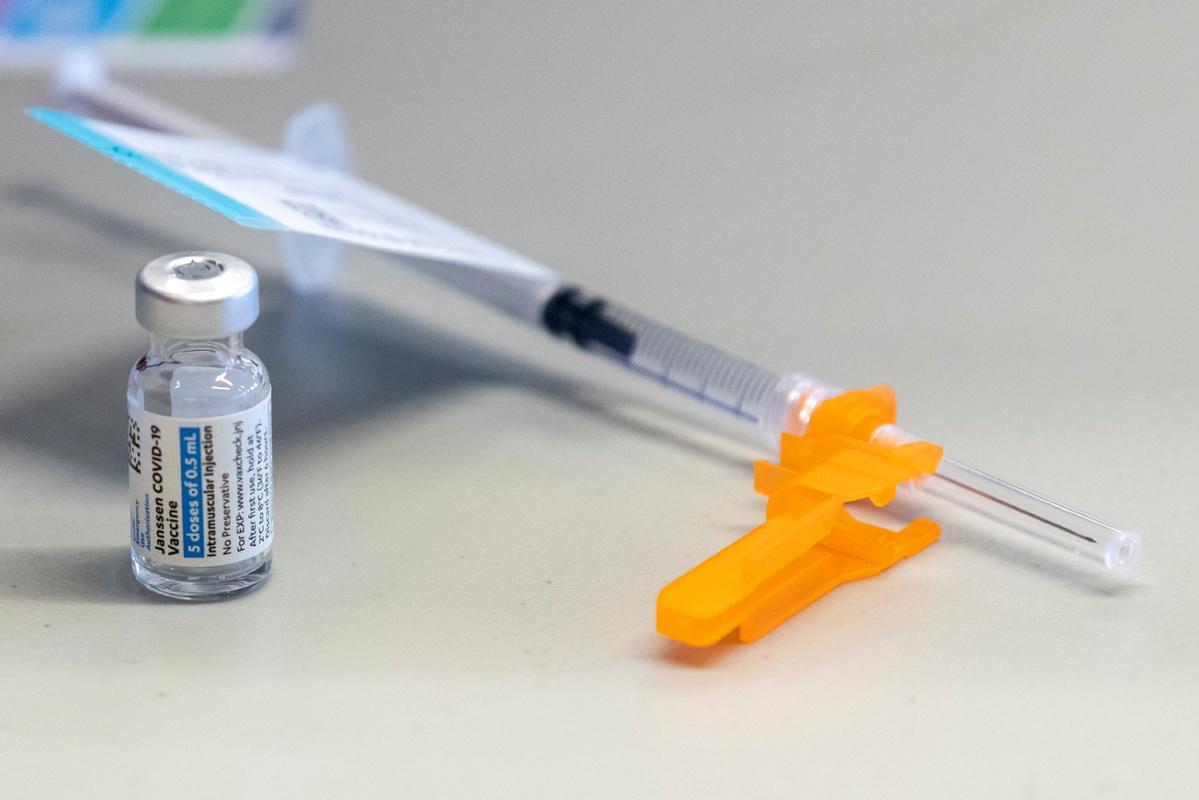Merck will help produce J&J vaccine


Merck & Co Inc will help make rival Johnson & Johnson's single-shot COVID-19 vaccine, President Joe Biden announced on Tuesday as health officials warned states against loosening restrictions amid an increase in coronavirus variants.
Biden said the Merck and J&J partnership will mean the US will have enough vaccine for all adults by the end of May, sooner than his previous timeline of the end of July.
The president also announced his administration is directing states to prioritize vaccinating teachers, child care workers and school staff through the administration's partnership with pharmacies. Biden said he wants all such educators and support staff to have at least one vaccine shot by the end of March.
The president said he will use the Defense Production Act to accelerate the production of equipment, machinery and supplies.
J&J's vaccine production has been slower than promised. Under its contract, the company was supposed to deliver 12 million doses by the end of February but had less than 4 million ready to ship when the vaccine was authorized on Saturday. It expects to be able to deliver another 16 million doses by the end of the month — still well short of its previous commitments — but will not ship any next week.
The company has said it will be able to provide the full 100 million doses it has agreed to supply by its original midyear deadline.
As Biden announced the Merck and J&J deal, scientists and health experts said they are worried about several strains of the coronavirus now in the US. There are now more than 940 reported cases of coronavirus variants, according to data updated Tuesday by the Centers for Disease Control and Prevention (CDC), and 932 of them are the variant first identified in the UK, B.1.1.7, which is highly contagious.
The variant B.1.351 was first discovered in South Africa and might partly escape the effects of the vaccines.
Despite the warnings, Texas Governor Greg Abbott on Tuesday ended his statewide mask mandate and said all businesses in the state could reopen March 10 with no capacity limits.
Mississippi Governor Tate Reeves tweeted that starting Wednesday, all county mask mandates will be lifted, and businesses will be allowed to operate at full capacity. "Our hospitalizations and case numbers have plummeted, and the vaccine is being rapidly distributed. It is time!" Reeves tweeted.
Other states that have rescinded business restrictions fully or partially and or mask mandates include North Dakota, Iowa, Kentucky and Pennsylvania. "We need to balance protecting public health with leading the state to a robust economic recovery," Pennsylvania Governor Tom Wolf said in a statement.
The warning about variants comes as more Americans believe there's no big risk in returning to pre-coronavirus life, according to a new poll, and as governors in several states mitigate restrictions.
An Axios-Ipsos poll published Tuesday showed 66 percent of those surveyed said they thought the risk of returning to pre-pandemic life was moderate or large. That's the lowest percentage since October. The groups least likely to see COVID-19 as a risk were people ages 18 to 29 (58 percent) and Republicans (49 percent). But a majority of those vaccinated — 76 percent — still see the virus as a high risk.
Healthcare experts are warning that it might be too soon to think the COVID-19 pandemic will be over by the end of 2021.
The global number of new coronavirus cases rose for the first time in nearly two months, the World Health Organization (WHO) said Monday, blaming the surge in infections on circulating variants and premature efforts to lift public health restrictions.
Cases over the past week jumped in every region except for Africa and the Western Pacific, the UN agency said, after declining for six weeks straight.
In the United States, a steady drop in new cases last month also appeared to be leveling off, and there are fears it could reverse course amid yet another wave of infections.
"If the last week tells us anything, it's that this virus will rebound," said Maria Van Kerkhove, the WHO's technical lead officer for COVID-19. "This virus will rebound if we let it. We cannot allow it to take off again."
Those warnings were echoed on Monday by the head of the Centers for Disease Control and Prevention (CDC), Dr Rochelle Walensky.
The most recent seven-day average of new cases in the US shows an increase of just over 2 percent compared with the prior seven days, she said. About the same increase was reported in the most recent seven-day average of deaths, she added.
"With these new statistics I am really worried about reports that more states are rolling back the exact public-health measures we have recommended to protect people from COVID-19," said Walensky.
She cautioned that with the decline in cases "stalling" and with variants spreading, "we stand to completely lose the hard-earned ground we have gained".
Testing has fallen 30 percent in recent weeks, leaving experts worried about how quickly new outbreaks will be known. Nearly 32.9 million people have received at least one dose of their two-dose vaccines, according to CDC data, but millions are still waiting. More































